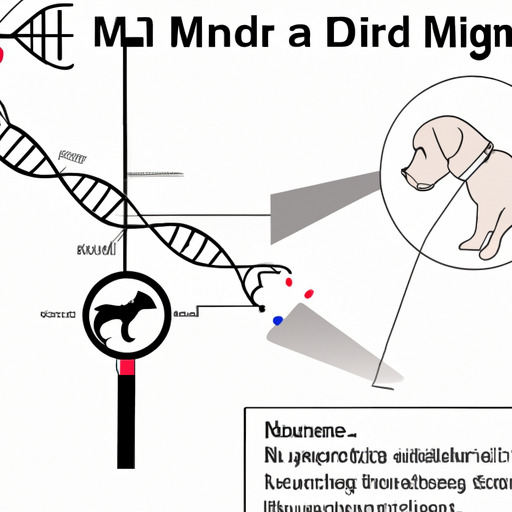Understanding the MDR1 Gene
MDR1 or Multi-Drug Resistance 1 is a gene found in many dog breeds. This gene is responsible for producing a protein that plays a crucial role in protecting the brain by transporting potential toxins out of the brain cells. If a dog has a mutation in this gene, certain drugs cannot be effectively transported out, leading to potential toxic build-up and subsequent health issues.
Why is MDR1 Important?
The MDR1 gene mutation is significant because it can make your dog sensitive to certain medications. Your furry friend might experience severe adverse reactions to drugs which are harmless or therapeutic to other dogs. This can include common drugs like certain types of dewormers, anti-diarrhea medications, and tranquilizers.
| Common Drugs Affected by MDR1 Mutation | Possible Effects |
|---|---|
| Ivermectin (a common dewormer) | Neurotoxicity |
| Loperamide (anti-diarrhea medication) | Sedation, Ataxia |
| Acepromazine (tranquilizer) | Excessive sedation |
How is MDR1 Inherited?
The MDR1 mutation is autosomal recessive, meaning a dog must inherit one copy of the mutated gene from each parent to be affected. Dogs with one copy of the mutated gene are carriers and can pass it on to their offspring.
- If both parents are normal: All puppies will be normal.
- If one parent is a carrier: About half of the puppies will be carriers.
- If both parents are carriers: About 25% puppies will be normal, 50% will be carriers, and 25% will be affected.
How to Test for MDR1
If you suspect your dog might have the MDR1 mutation, it’s vital to have them tested. The test involves a simple cheek swab DNA test that can be done at home or at your vet’s office. If the test comes out positive, your vet can guide you on the necessary precautions to ensure your dog’s health and safety.
How to Manage a Dog with the MDR1 Mutation
Living with a dog that has the MDR1 mutation doesn’t have to be a stressful experience. Here are a few steps you can take to ensure their well-being:
- Keep a list of drugs that can cause adverse reactions in your dog and share it with any healthcare provider.
- Regularly consult with your vet about your dog’s health and medications.
- Always read medication labels carefully.
FAQs
1. Which breeds are commonly affected by the MDR1 mutation?
Herding breeds like Australian Shepherds, Collies, and Shelties are most commonly affected. However, the mutation can occur in other breeds.
2. Can a dog with an MDR1 mutation live a normal life?
Absolutely. With proper care and avoiding certain medications, these dogs can lead a healthy and happy life.
3. Is the MDR1 mutation curable?
No, it’s a genetic mutation and cannot be cured. However, it can be managed effectively with care and caution.
4. How can I prevent my dog from getting the MDR1 mutation?
The mutation is inherited, so it can’t be prevented if the dog’s parents are carriers. However, responsible breeding practices can help reduce its prevalence.



